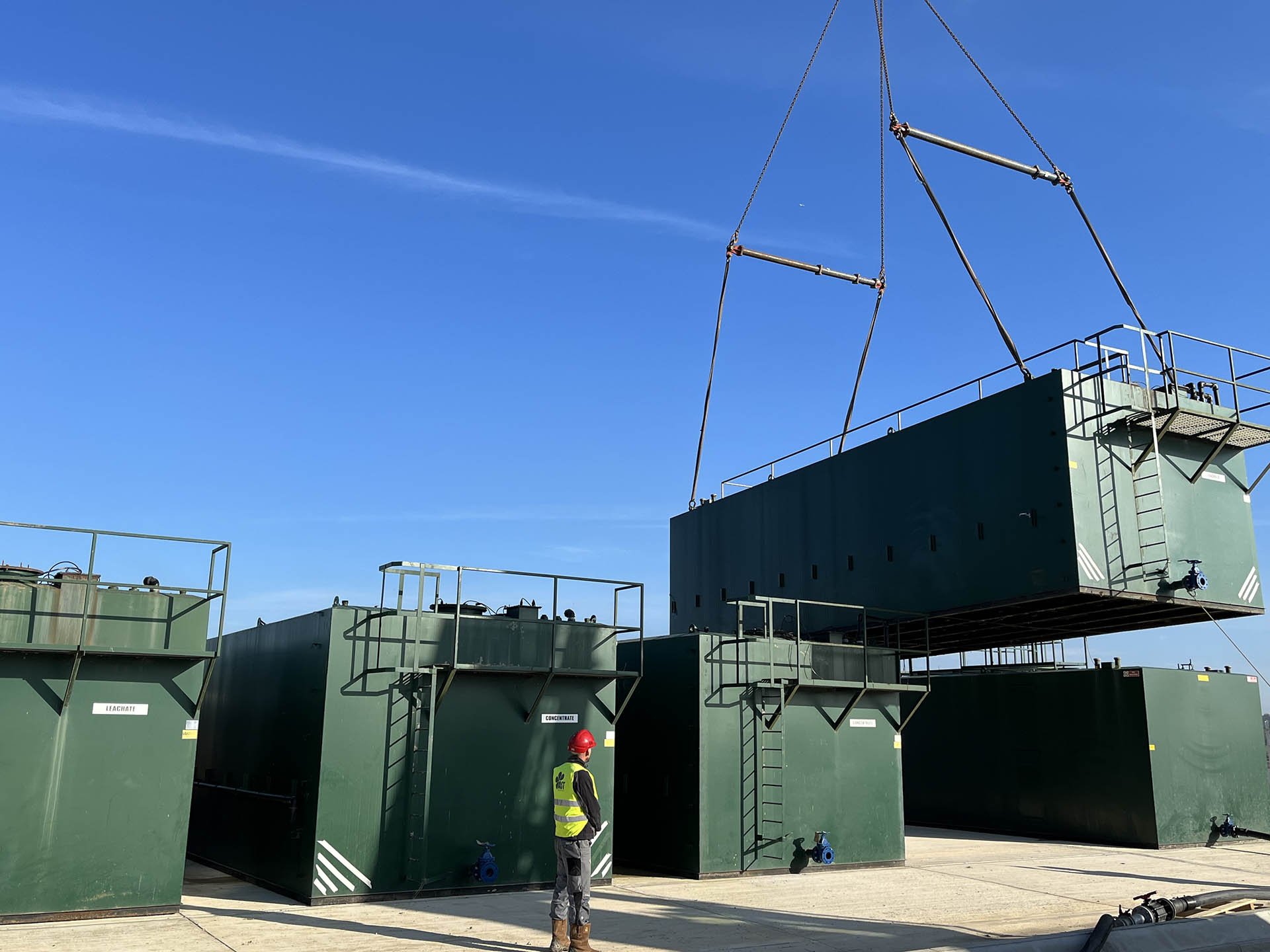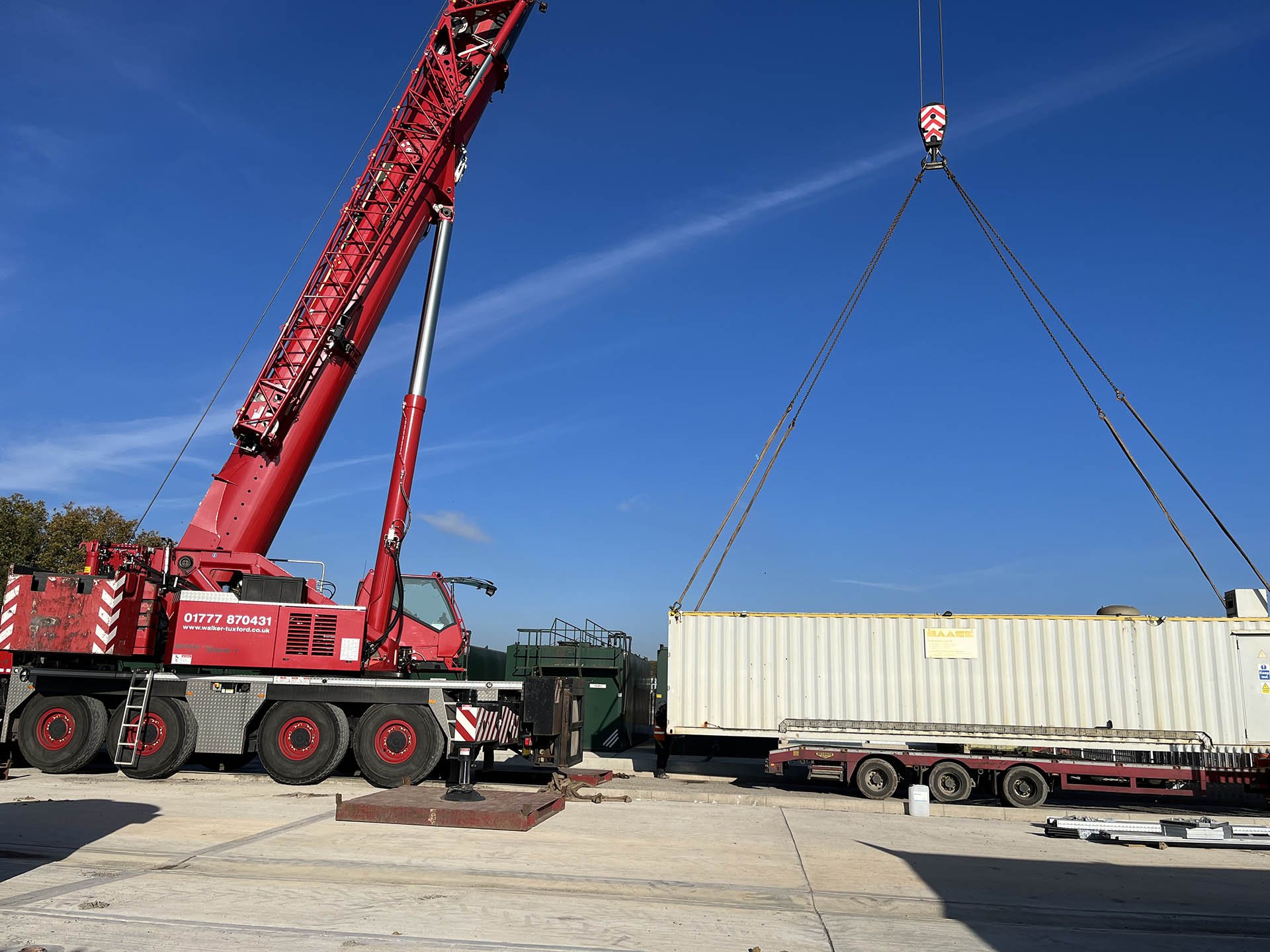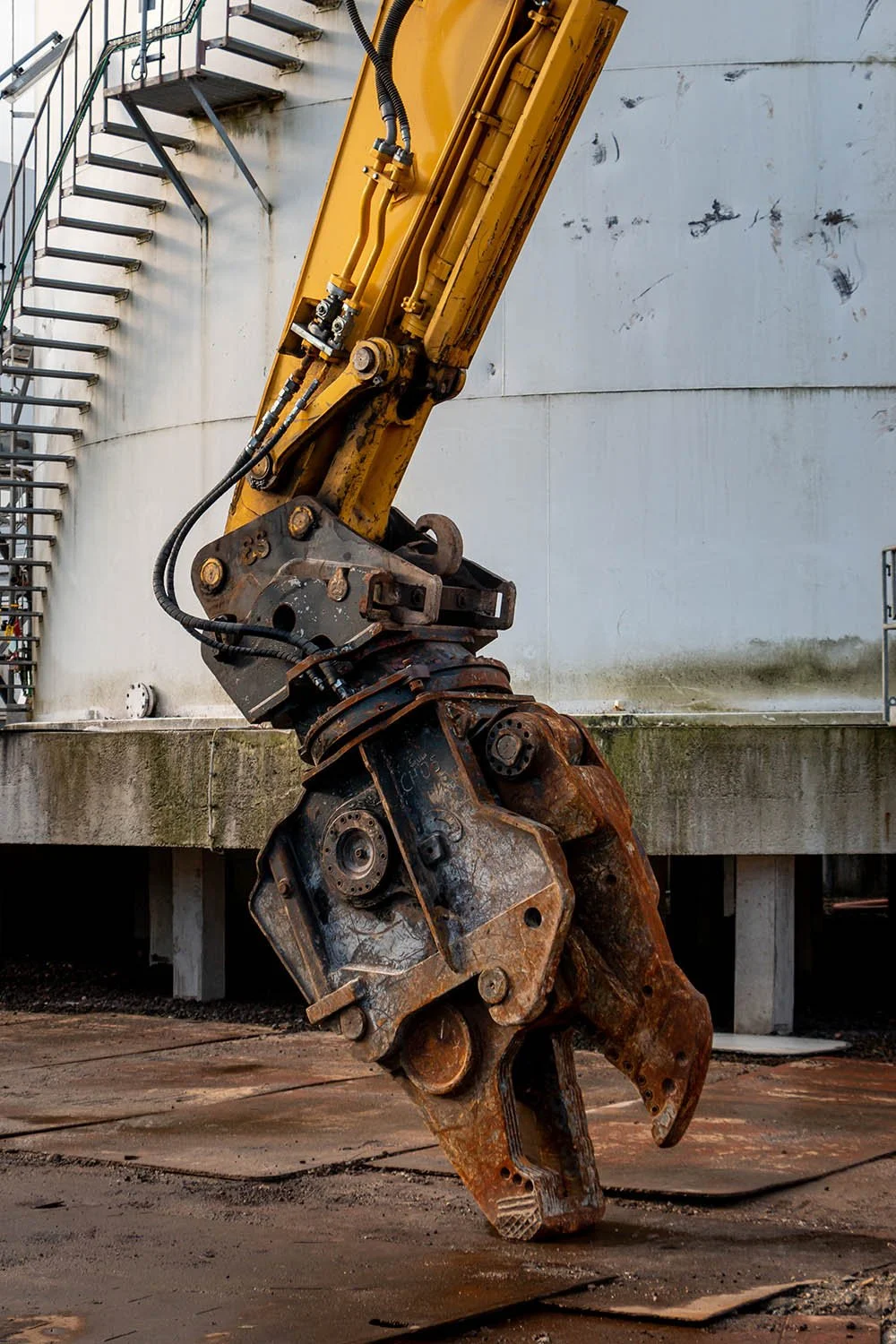Efficient and Safe Decommissioning of Old Fuel Farms and Leachate Landfill Tanks: The OTS Group Approach
As the demand for sustainable and environmentally responsible solutions in the fuel industry grows, decommissioning old fuel farms and leachate tanks has become an increasingly important aspect of industrial operations. With 50 years of experience in the industry, OTS Group is a leading provider of bespoke fuelling solutions. Backed by a team of 23 engineers covering the UK to provide an unrivalled installation and maintenance service, our commitment to customer satisfaction, on-time project completion, and staying within budget has made us the go-to choice for tank decommissioning and removal services.
Reasons for Decommissioning Fuel Farms
Environmental protection: One of the main reasons for decommissioning fuel farms is to mitigate the environmental risks posed by ageing infrastructure. Old tanks can corrode or develop leaks, leading to soil and groundwater contamination. Decommissioning these tanks helps prevent pollution and ensures adherence to environmental regulations.
Safety concerns: Ageing fuel tanks can pose significant safety hazards. Structural deterioration and corrosion can lead to tank failure, putting employees and nearby communities at risk. Decommissioning old tanks reduces these risks and helps maintain a safe working environment.
Regulatory compliance: Strict regulations govern the storage and handling of fuels and chemicals. Companies must comply with these regulations to avoid penalties, fines, or legal action. Decommissioning non-compliant fuel farms is essential to meet regulatory requirements and maintain your company's reputation.
Operational efficiency: Decommissioning outdated fuel farms can pave the way for more efficient and sustainable storage solutions. Modern fuel farms incorporate advanced technologies and materials, providing better safety and environmental protection. Transitioning to these advanced systems can improve overall operational efficiency and reduce long-term maintenance costs.
Site redevelopment: Companies may choose to decommission their fuel farms to repurpose the land for other uses, such as new facilities or infrastructure projects. Properly decommissioning and removing old tanks ensures a safe and environmentally responsible site for redevelopment.
Reasons for Decommissioning Leachate Landfill Tanks
Leachate tanks, which store the liquid by-product resulting from water percolating through waste materials in landfills, play a crucial role in waste management. However, there are several reasons why companies might consider decommissioning leachate tanks:
End of useful life: Like any storage infrastructure, leachate tanks have a finite lifespan. Over time, they can deteriorate, becoming susceptible to corrosion, leaks, and structural failure. Decommissioning these tanks at the end of their useful life helps prevent potential environmental and safety hazards.
Environmental protection: Leachate contains various contaminants, including heavy metals, organic compounds, and pathogens, which can pose significant risks to the environment if not managed properly. Decommissioning old or damaged leachate tanks helps prevent leaks and spills, mitigating the risk of soil and groundwater contamination.
Safety concerns: Aging leachate tanks can pose safety hazards to both employees and nearby communities. Structural deterioration or leaks can lead to accidents or exposure to hazardous materials. Decommissioning these tanks reduces safety risks and ensures a secure working environment.
Regulatory compliance: Leachate management is governed by strict environmental regulations. Companies must ensure that their leachate storage and handling practices comply with these regulations to avoid penalties, fines, or legal action. Decommissioning non-compliant leachate tanks is essential to maintain compliance and protect your company's reputation.
Upgrading storage facilities: As technology advances, companies may opt to replace old leachate tanks with newer, more efficient storage systems. These modern systems offer improved safety features, better environmental protection, and easier maintenance. Decommissioning old tanks is necessary to facilitate the transition to these upgraded facilities.
Changes in waste management strategy: Companies may choose to decommission leachate tanks if they are shifting their waste management strategy, such as adopting alternative waste treatment technologies or closing a landfill site. In such cases, proper decommissioning ensures the safe and environmentally responsible removal of the tanks.
Decommissioning leachate landfill tanks is an important aspect of responsible waste management, addressing environmental, safety, and regulatory concerns. Proper decommissioning ensures a safer and more sustainable future for both the company and the surrounding environment.
Decommissioning Old Fuel Farms and Leachate Tanks: The Process
OTS Group recognises the environmental concerns and potential hazards associated with redundant tank farms and disused leachate tanks and we are proud to be able to decommission any tanks safely and professionally. The decommissioning process involves:
Initial site assessment: This involves evaluating the site and determining the specific requirements for tank removal and decommissioning.
Cleaning to 'Gas Free' regulations: Before removal, the tanks are cleaned according to 'Gas Free' regulations to ensure safety and compliance with environmental standards.
On-site shearing: When site conditions permit, we can perform on-site shearing using hydraulic shears, a purpose-built machine designed for efficient steel cutting. This tool is ideal for demolishing steel structures and cutting large steel plates or girders while avoiding sparks and flames, ensuring safety, and reducing transportation costs.
Contract crane lift: OTS Group provides crane lifts for tank removal, ranging from standard lifts to six-point lifts for dangerous tanks.
Removal and disposal: The tanks are transported from the site to a certified waste site for environmentally friendly disposal.
Risk Management and Environmental Considerations
OTS Group's experienced tank removal team is highly trained in the high-risk activities involved in decommissioning and removal. We work closely with our clients to develop a tailored solution for each contract, utilising specialised hot and cold cutting techniques. Our comprehensive approach includes site-specific method statements, risk assessments, and adherence to Construction Design and Management (CDM) regulations where applicable.
Our unwavering commitment to safety and environmental standards allows us to conduct high-risk tasks securely and with minimal ecological impact. Our extensive portfolio of successful decommissioning projects showcases our ability to handle a diverse range of tank sizes, from small industrial tanks to expansive multi-million litre storage tanks.
The Benefits of Professional Tank Removal Services
At OTS Group, our unrivalled expertise and commitment to customer satisfaction establish us as a trusted partner for decommissioning old fuel farms and leachate tanks. Our comprehensive approach ensures the highest levels of safety and environmental responsibility while delivering projects 'on time and on budget'.
Engaging a professional service provider like OTS Group for tank decommissioning and removal offers numerous benefits:
Expertise and experience: Professional tank removal teams have the necessary skills and experience to manage the complex process of decommissioning fuel farms. This ensures that the work is completed safely, efficiently, and in compliance with environmental regulations.
Risk management: Decommissioning fuel farms involves inherent risks, such as pollution and environmental hazards. A professional service provider can develop a tailored solution that addresses these risks, utilising specialised techniques and equipment to ensure safety and minimise environmental impact.
Cost-effectiveness: We can help you save time and money by providing a comprehensive solution that covers site assessment, tank cleaning, removal, and disposal. This streamlined approach reduces the potential for costly errors or delays.
Regulatory compliance: As a professional tank removal service provider, we are well-versed in the applicable regulations and can ensure that the decommissioning process complies with all relevant laws and standards.
As the industry continues to evolve, companies seeking a reliable and professional tank decommissioning solution need look no further. If you are looking for assistance with decommissioning a fuel farm or leachate site, please don't hesitate to get in touch with our team.



